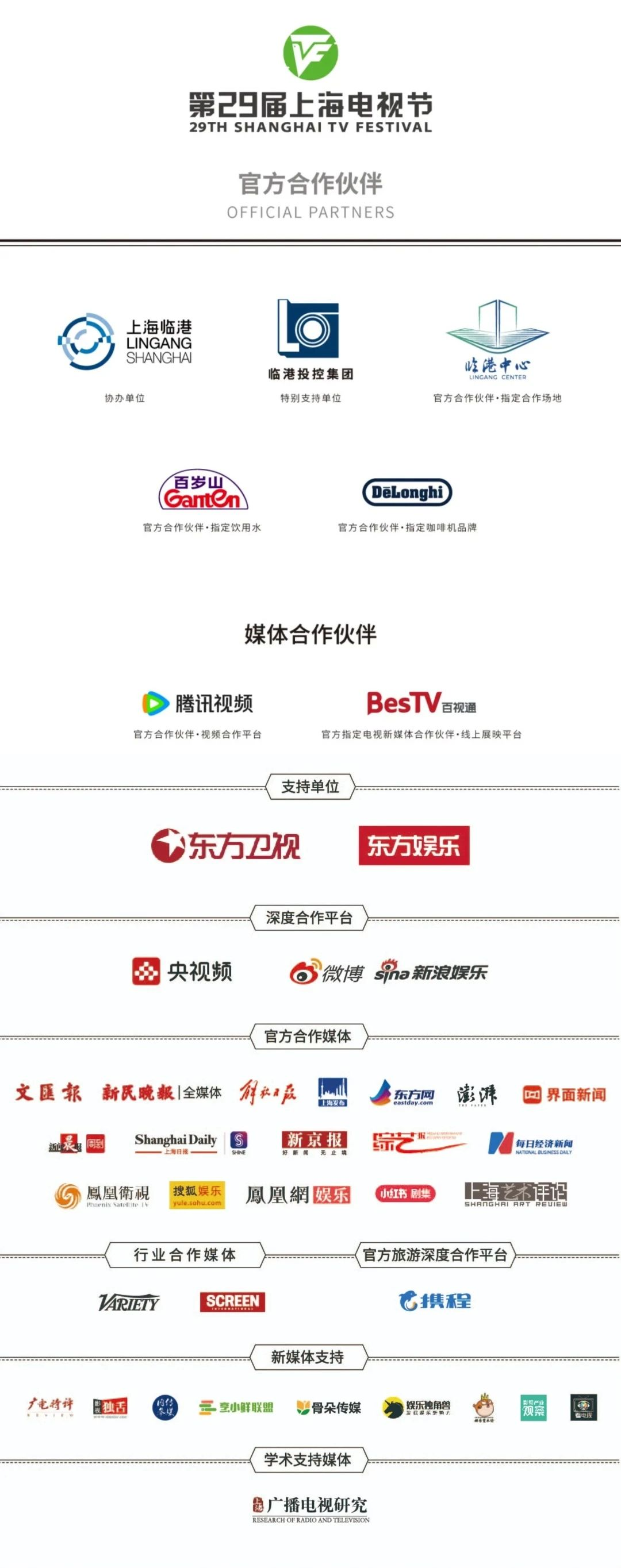Dialogue on AIGC Usage and Governance Held, Shanghai Media Group and Shanghai University Jointly Establish the "International Intelligent Communication Governance and Strategy Research Center"
On the afternoon of June 27th, the 29th Shanghai Television Festival (STVF) hosted the STVFORUM, focusing on "Focus on New Productivity of Media: Dialogue on AIGC Usage and Governance", at Shanghai Media Group (SMG). The event was co-hosted by SMG and Shanghai University, with organizational support from the "Research of Radio and Television" magazine and the School of Journalism & Communication Shanghai University. The forum aimed to explore the use and governance of AIGC in the media, providing insights and recommendations for the application and development of generative artificial intelligence in the broadcasting and television industry.
During the forum, the "International Intelligent Communication Governance and Strategy Research Center", jointly established by SMG and Shanghai University, was officially launched. Concurrently, several important publications were released: the "Global Artificial Intelligence Media Development Research Report (2023-2024) [Advance Edition]", the "Generative Artificial Intelligence Credibility Index System Report [Advance Edition]", and the YICAI Media Big Model [Pre-release Edition].
The event featured speeches from Liu Li, Director of the Policy and Regulation Department at the National Radio and Television Administration, Fang Shizhong, Deputy Head of the Publicity Department of the CPC Shanghai Municipal Committee and Party Secretary of Shanghai Media Group, and Duan Yong, Deputy Secretary of the Party Committee of Shanghai University. Scholars from the National Radio and Television Administration, China Media Group, Shanghai Municipal Administration of Culture and Tourism, Shanghai Jiao Tong University, Shanghai University, Chalmers University of Technology in Sweden, Korea University, and nearly a hundred industry experts from companies like Baidu, SenseTime, and Tencent, collectively participated in this significant event.

Opening Remarks
Empowerment and Restructuring of the Broadcasting Industry through AIGC
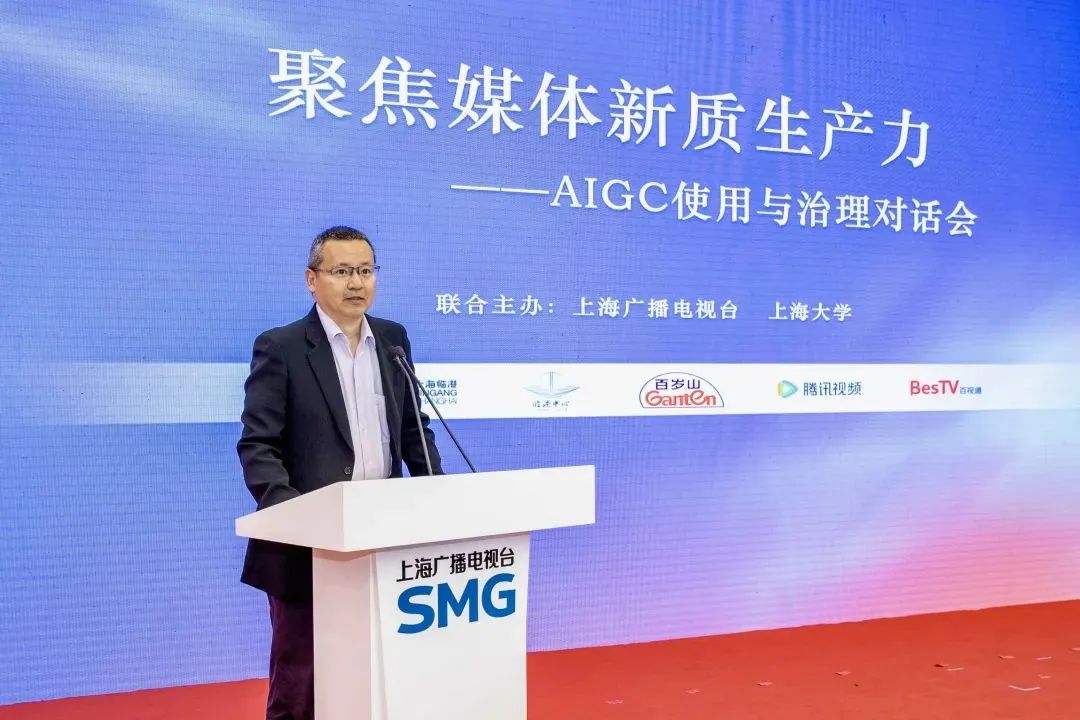
Liu Li, Director of the Policy and Regulation Department at the National Radio and Television Administration, articulated the National Radio and Television Administration's commitment to leading the media industry through proactive guidance and advancement of AIGC applications. In response to the risks associated with generative AI, the administration plans to implement a series of measures to manage its deployment effectively. This includes fostering collaboration, regulatory oversight, and education to navigate the intersection of AI technology and human creativity, ensuring a symbiotic development that marks a new era in media integration.
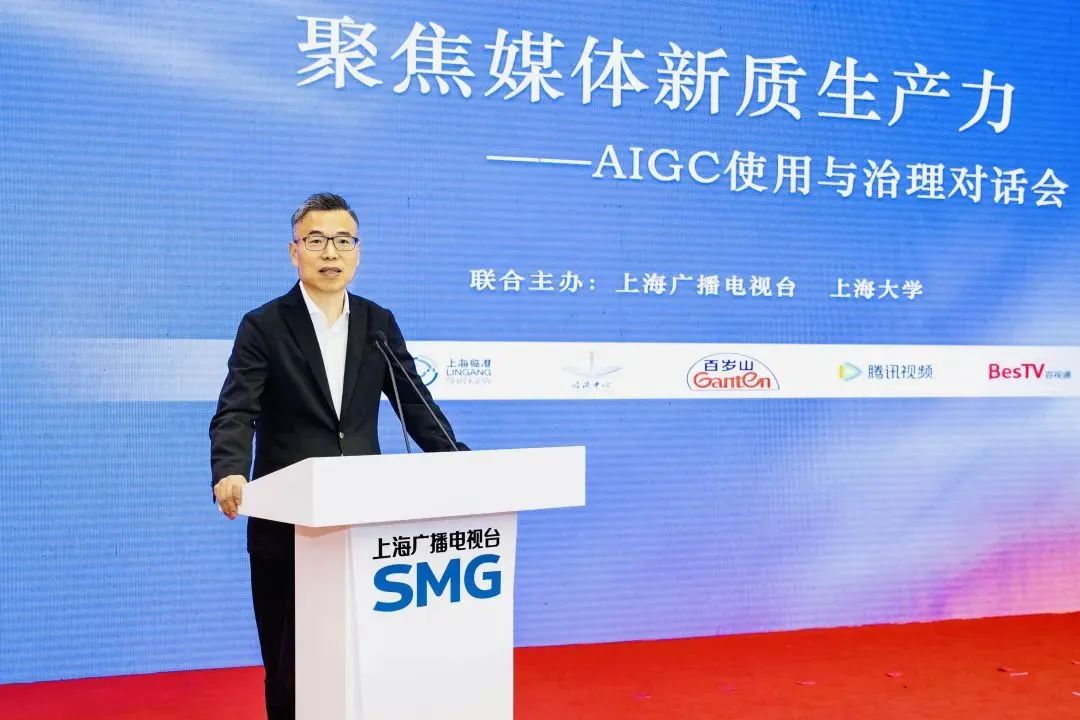
Fang Shizhong, Deputy Head of the Publicity Department of the CPC Shanghai Municipal Committee and Party Secretary of Shanghai Media Group, said, "Facing new opportunities and challenges brought by new technologies, SMG has always maintained a strategic initiative, continuously challenging itself, striving for excellence, and actively embracing the transformation brought by intelligent technology, accelerating the application of AIGC in the media field. Particularly, we have focused on 'SMG in AI' as a main direction, committed to reshaping the media technology base with AI, and rapidly promoting intelligent, ultra-clear, and mobile development. We hope that this forum will enable the media and academic circles to reach a broad consensus on the use and governance of AIGC in the media field. SMG is also eager to strengthen cooperation with higher education institutions, research organizations, and technology companies to explore a joint development mechanism for 'industry, education, research, and application' of AIGC, jointly forging the new productive forces of the media in the intelligent era."
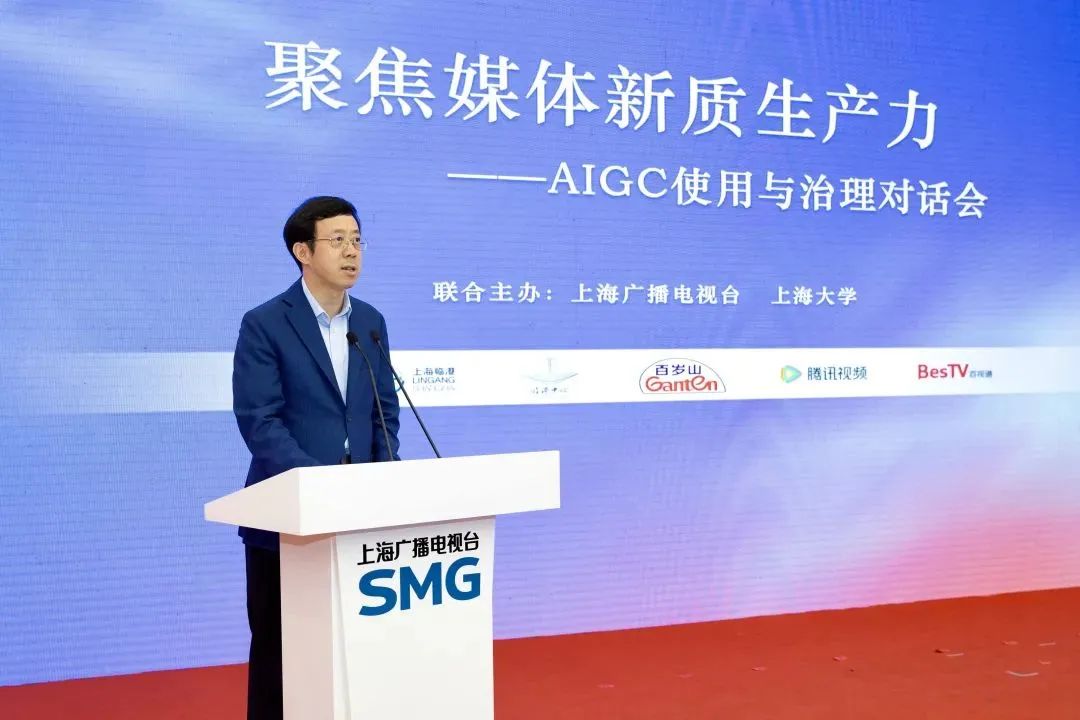
Duan Yong, Deputy Secretary of the Party Committee of Shanghai University, stated, "Serving the national strategy and the socio-economic development needs of Shanghai has always been the unchanging original aspiration of Shanghai University, as well as the mission of building a high-level university. This dialogue session is committed to building a platform for deep interaction between industry, education, and research. The School of Journalism & Communication Shanghai University will continue to uphold its disciplinary advantages while adapting to new changes and layouts in the media industry. It will focus on intelligent communication and media economy in its research and teaching to meet the national strategic needs, integrating quality resources from the industry to become a new engine for the development of new liberal arts at Shanghai University."
Keynote Speeches
Current Status and Trends in the Application of AIGC in the Media Industry
At the forum, guests from various perspectives delivered keynote speeches about the current status, challenges, and future trends of AIGC applications in the media industry. Chen Jiangjiang, Director of the National Key Laboratory Application Promotion Platform at China Media Group, provided an in-depth analysis of the "The White Book on the Development of Artificial Intelligence of CMG". CMG is committed to co-creating, co-building, and sharing a media AI ecosystem suitable for China's media industry, accelerating the cultivation and development of new productive forces in the media field together with industry stakeholders.
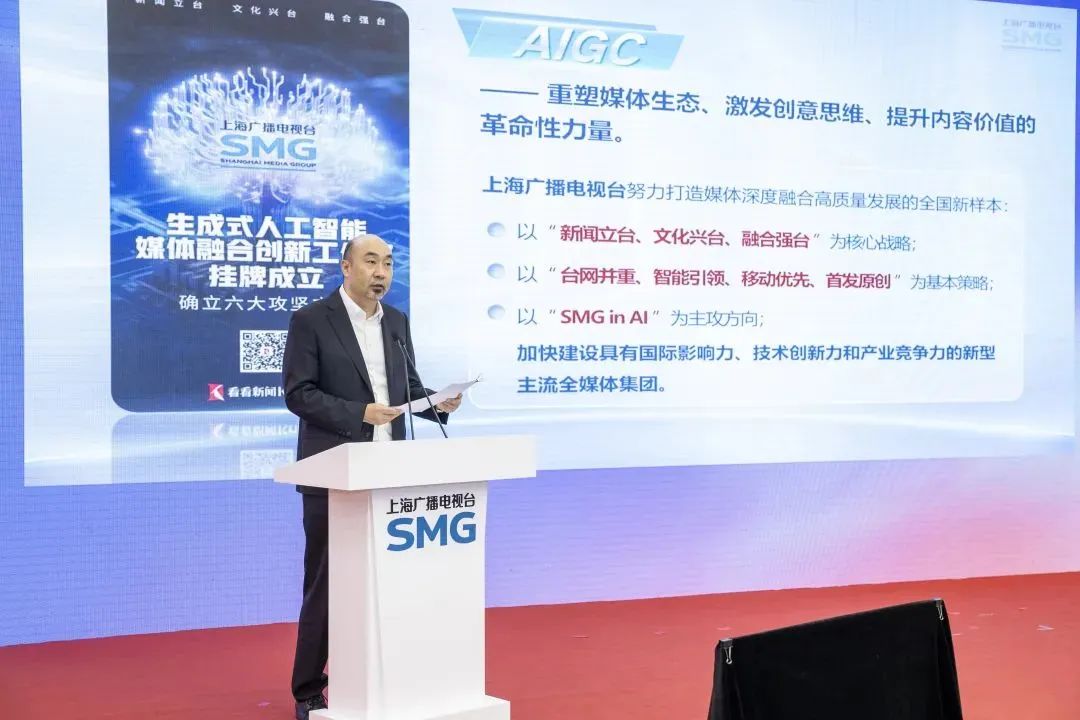
Song Jiongming, Deputy Secretary of the Party Committee, Director, and President of Shanghai Media Group, discussed the innovations and responsibilities of SMG under the wave of AIGC. Focusing on "SMG in AI", SMG has comprehensively arranged its layout with the wisdom of AIGC driving content and product innovation. Addressing the risks and governance issues associated with the use of AIGC, he emphasized that as a mainstream media, it is essential to both "use well" and "govern well" AIGC. SMG has specifically formulated the "Regulations on the Use and Management of Artificial Intelligence" (draft for comments), adhering to the three major principles of "people-oriented, intelligence for good", "data security, information protection", and "consensus building, collaborative governance".
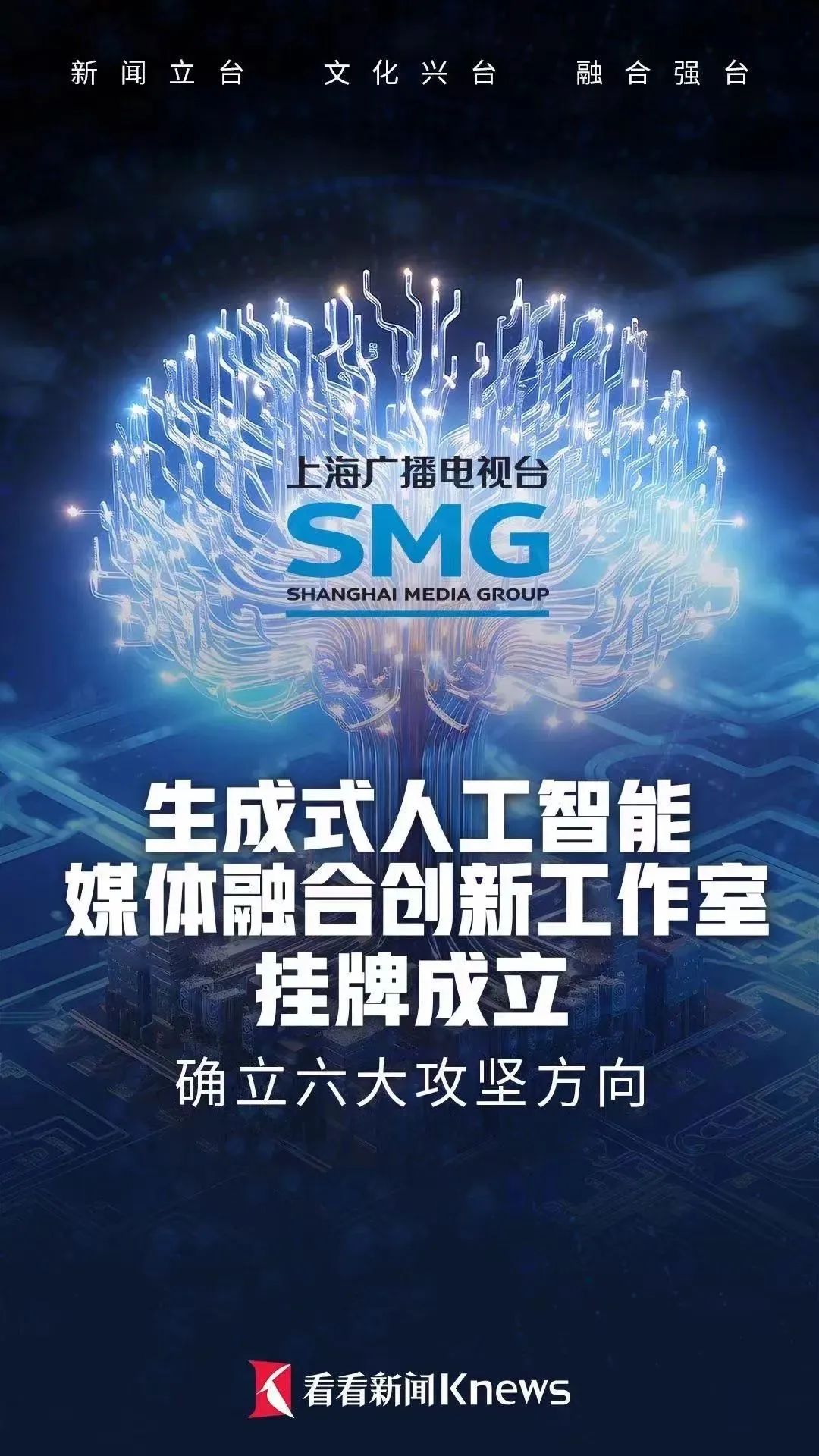
Ye Hanghui, General Manager of Baidu AI Cloud Media Business Department, introduced "In the era of large models, Baidu AI Cloud aids high-quality development in the media." Baidu AI Cloud empowers the media industry with large models, injecting new intelligent energy comprehensively from the dimensions of creativity, reach, influence, and productivity. Li Xingye, Vice President of the Digital Entertainment Business Unit at SenseTime, presented SenseTime's large model matrix and virtual digital humans, showcasing exciting new features along with technological breakthroughs in areas such as generative video and the Sensenova large model. Shu Wenqi, General Manager of Tencent Cloud Media and New Cultural and Creative Industries, shared applications of AIGC in Tencent Meeting, news, reading, advertising, and operations, proposing an AIGC intelligent entity application platform solution for the media industry's future.
From the academic perspective, experts focused on the latest research achievements in artificial intelligence governance. Professor Erik Pollin from Chalmers University of Technology in Sweden discussed "AIGC Use and Governance: European Cases and Experiences" and interpreted the pioneering AI Act by the European Union, exploring value- and ethics-based risk assessment methods, analyzing trade-offs between different policy choices and governance measures. Professor Kim Sung-Chul from Korea University detailed the application of generative AI across various stages of creative industry production in South Korea through rich cases. He delved into the current status of generative AI applications across sectors in South Korea, discussed the issues it faces at legal, ethical, and socio-economic levels, and reflected on the harmonious coexistence of humans and AI in the future.
Roundtable Discussion
Focusing on the Use and Ethics of AIGC
Ye Hanghui, General Manager of Baidu AI Cloud Media Business Department; Yi Shuai, General Manager of Overseas R&D Center of SenseTime Technology Co., Ltd.; Wang Chuannan, General Manager of AI Solutions at Tencent YouTu Lab; Professor Erik Pollin from Chalmers University of Technology, Sweden; Professor Kim Sung-Chul from Korea University; and Tang Lifen, Director of the Editorial Office of Shanghai Media Group, focused on "AI-generated content, media applications, and ethical issues". They engaged in a heated panel discussion on how AIGC technologically empowers the broadcast and television industry, addressing multiple aspects such as content production, media ecology, commercial applications, security challenges, and the impact on higher education and academic research. The discussion was moderated by Liu Youli, a Distinguished Professor at Shanghai University.
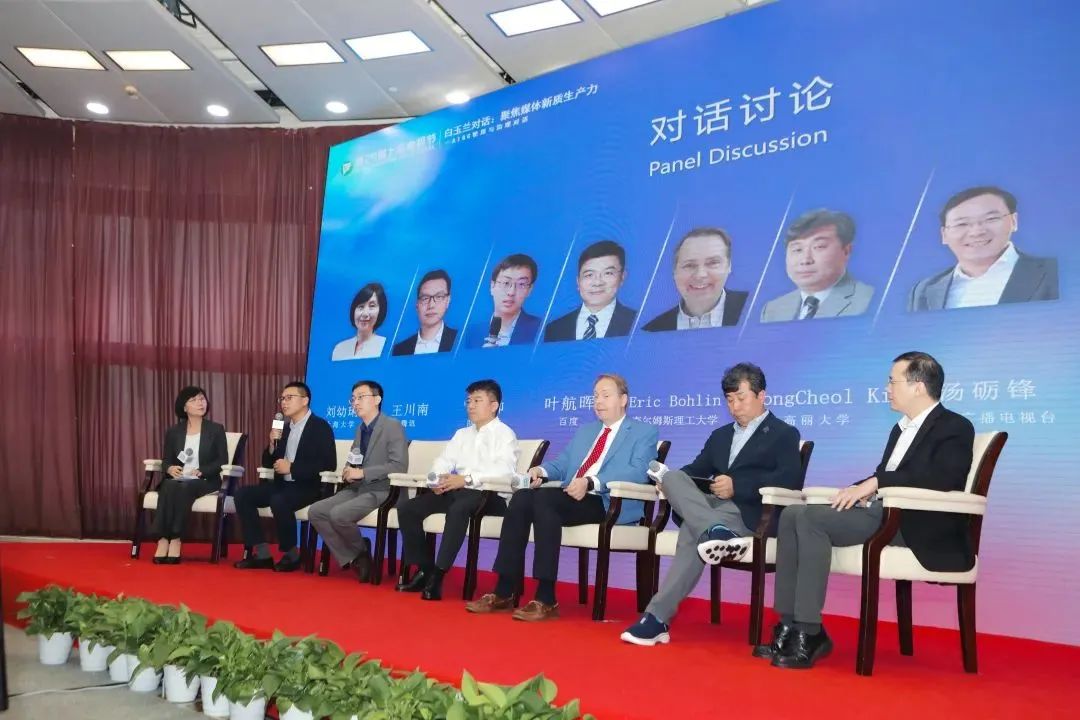
Major Release
New Ecosystem for Media Development in the Age of Artificial Intelligence
At the end of the forum, Wang Hu, a visiting deputy dean and professor at the School of Journalism & Communication Shanghai University, released the "Global Artificial Intelligence Media Development Research Report (2023-2024) [Advance Edition]". He shared the global development and application status of AI technology, analyzing the current situation of AI media development globally and in China from perspectives of strategy, technology, industry, business, and ethical security.
Professor Yu Weihua from the School of Media & Communication, Shanghai Jiao Tong University, using the principles of the Analytic Hierarchy Process, released the "Generative Artificial Intelligence Content Trustworthiness Index System Report" (Advanced Edition), which evaluates AI-generated content based on ten primary indicators.
Yang Yudong, chief editor at SMG YICAI, introduced the YICAI Media Big Model [Pre-release Edition]. This large model, based on a foundation of general-purpose corpora, is infused with over one billion tokens of high-quality financial media data and domain-specific knowledge, serving the financial media content production. It is expected to become a valuable financial advisor and assistant, providing top-tier financial information services amidst the rapidly changing dynamics of the global capital markets.
More details of the forum will be published in the July issue of "Research of Radio and Television" magazine, the only official academic media partner designated by the STVF.
Reporter | Wu Zhongyuan
Photography | Li Zhiqi, Zhang Wei
Material Source | Editorial Office

The 29th STVF is hosted by the National Radio and Television Administration, China Media Group, and the Shanghai Municipal People's Government, and organized by Shanghai Municipal Administration of Radio and Television and Shanghai Media Group, with co-organization by the Administration Committee of Lin-gang Special Area of China (Shanghai) Pilot Free Trade Zone, and special support from Shanghai Lingang Special Area Investment Holding (Group) Co., Ltd.
